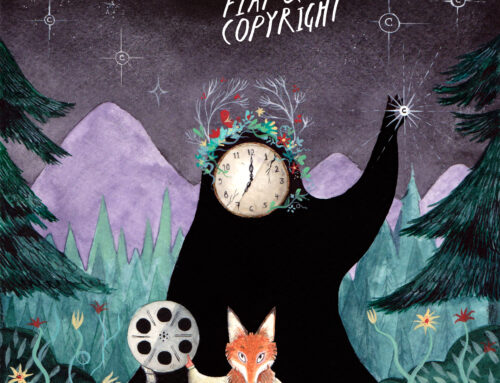Dr Rebecca Shaw, Lecturer in Law, University of Leeds
Despite legislative changes in 2021 with the Domestic Abuse Act, and its stated aim to raise awareness of domestic abuse and further improve the effectiveness of the justice system, domestic abuse remains an inherently difficult problem to tackle. One in five adults experience domestic abuse during their lifetime with a domestic abuse related call made to the police every 30 seconds.[1] This research project aims to offer a new contribution to current research by adopting a narratological methodology to explore and scrutinise the stories of service providers, and how they relate to the dominant narrative(s) on domestic abuse. The challenge being to better understand and contribute – ultimately – to changing the dominant narratives on domestic abuse. This project has a number of overarching aims: to use a new, ground-breaking application of narrative methodology for investigating the stories of service providers’ experiences with both domestic abuse victim-survivors and perpetrators; to assess current practitioners’ perceptions of the dominant narratives regarding domestic abuse and identify what kinds of narratives persist in preventing change; and to identify gaps in understanding how the system responds to the needs of both victim-survivors and perpetrators, and potential strategies for practical change of the narrative of domestic abuse. The project has been co-designed from its inception by the principal investigator and four service providers from the Leeds, York and West Yorkshire area.
Narrative theory starts from the assumption that narrative is a basic human strategy for coming to terms with fundamental elements of our experience, and as a narrative theorist, I’m interested in “how stories help people make sense of the world and the laws that frame it”.[2] Narratives have a diverse role to play when it comes to harm and vulnerability. They can inspire and motivate harmful action; they are used to make sense of harm and vulnerability; and they are used in the process of surviving harm.[3] Narrative analysis is, thus, an essential methodological tool, and this research project takes this assertion as a valuable starting point to investigate the power and prevalence of master narratives – systemic and structural narratives that produce and reproduce socio-cultural stereotypes and biases – in the context of domestic abuse. These master narratives are told in service of a dominant social group’s interests and ideologies, often reflect conscious or subconscious biases, and usually achieve dominance through repetition. The continuing existence and co-constitution of such entrenched, dominant narratives within domestic abuse discourse should not be underestimated, despite key legislative changes and government strategies to tackle violence against women and girls. Legal and criminological storytelling can provide a lens through which the law’s hegemonic practices can be critiqued. Through examination of these stories, we can reveal the characters, voices and perspectives telling these stories and how these may or may not adhere to the hegemonic legal model. Analysing the stories, then, of those people who work with victim-survivors and perpetrators of domestic abuse is a productive exercise to find out about the hegemonic master narratives on domestic abuse that persist today, what we need to do in order to change them, so that the system can better respond to victim-survivors and perpetrators of domestic abuse.
Through a series of focus groups and narrative interviews with participants from each of the four partner organisations, this project is using a thematic and structural analysis to examine the narrative practices which play out among these stories; the effect of these stories on the characterisation of victim-survivors and perpetrators of domestic abuse; and assess front-line workers’ perspectives on the biases and misperceptions of domestic abuse. Narratology allows for a broader understanding of narrative, examining not only the content or themes of a story, but the structure of it too. Such a methodology draws on approaches from both the social sciences and linguistics. First, the thematic, content analysis revolves around the question of what the story is about and second, the structural analysis emphasising the form of a story and how a story is organised.[4] The latter is more concerned with the small building blocks of the story, with analysis at this micro-level of compelling value as it allows for an appreciation of how stories gain significance and how they shape the way we understand ourselves and are perceived by others. The project aims to utilise this methodology in this innovative context to better understand the stories of front-line workers, and work in collaboration with partners to craft solutions in a bid to change the dominant narrative and shape how agencies can prevent future harm and vulnerability through awareness of these systemic and structural dominant narratives.
Principal Investigator: Dr Rebecca Shaw, University of Leeds
Research Fellow: Dr Kelly Henderson, University of Leeds
[1] ONS Data 2022, https://www.ons.gov.uk/peoplepopulationandcommunity/crimeandjustice/bulletins/domesticabuseinenglandandwalesoverview/november2022 and HMICFRS, ‘The police response to domestic abuse: an update report’, 2019 https://assets-hmicfrs.justiceinspectorates.gov.uk/uploads/the-police-response-to-domestic-abuse-an-update-report.pdf <accessed 10th November 2023>
[2] Project Narrative https://projectnarrative.osu.edu/about/what-is-narrative-theory <accessed 10th November 2023>
[3] For more on narrative criminology, see Lois Presser, ‘Criminology and the Narrative Turn’ [2016] 12 (2) Crime Media Culture 137; Sveinung Sandberg and Thomas Ugelvik, ‘The past, present, and future of narrative criminology: a review and an invitation’ [2016] 12 (2) 129; Lois Presser and Sveinung Sandberg, ‘Narrative Criminology as Critical Criminology’ [2019] 27 Critical Criminology 131; Shadd Maruna and Marieke Liem, ‘Where is this story going? A critical analysis of the emerging field of narrative criminology’ [2021] 4 Annual Review of Criminology 125; and Rebecca Bunn, ‘Critical Narratives or Crime Stories? The Ethics and Politics of Narrative Research in Criminology’ [2023] 20 The British Journal of Criminology 1.
[4] Sveinung Sandberg, ‘Narrative Analysis in Criminology’ [2022] 33 (2) Journal of Criminal Justice Education 212






Leave A Comment